Mr. Nguyen Quoc Khanh's donut shop (Dong Da, Hanoi ) is very small and cramped but always crowded with customers, selling 4,000-6,000 donuts/day.
At 3:30 p.m., the traditional donut shop on Thai Thinh Street (Dong Da, Hanoi) began to bustle with customers. Mr. Khanh (30 years old, shop owner) and his staff quickly shaped, fried, flipped, packaged the donuts,...
“The shop is so small but it is very crowded, dozens of people waiting to get a batch of hot cakes just out of the oven,” Ms. Huong (Cau Giay, Hanoi) - a regular customer of the shop for many years, shared while waiting in line to buy cakes.
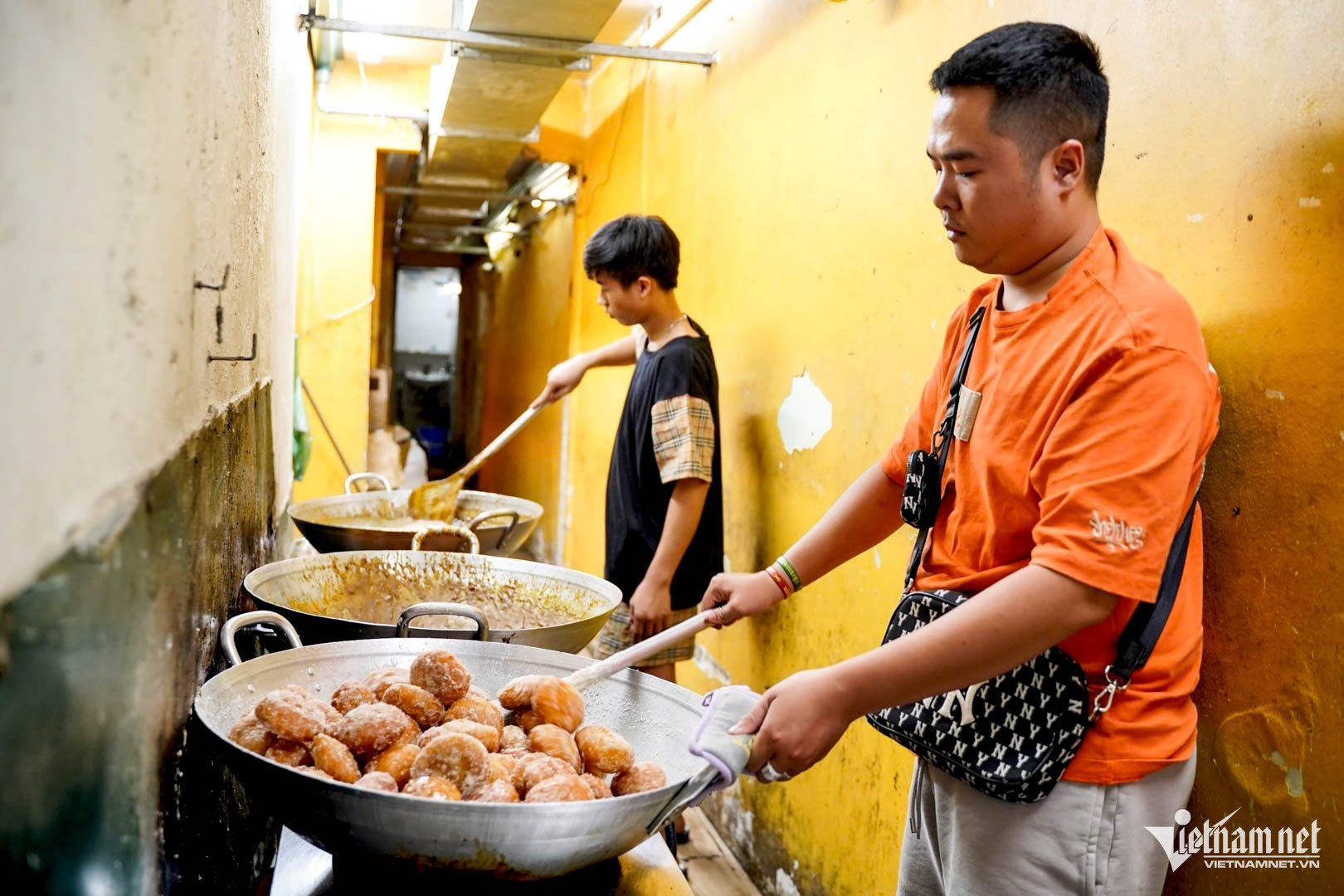
The shop only has two types of cakes: honey donuts and sugar donuts. After frying, the cakes are tossed in sugar or honey to evenly coat the outer layer with sweetness.
Sugar donuts use white granulated sugar, while molasses donuts use molasses.
According to Mr. Khanh, the shop has only been open for more than 4 years, but the donut making profession has been around since his grandparents' time.
“My parents did not continue this profession, but I loved it so I decided to learn the recipe and open a shop with the hope of bringing customers traditional flavors through each cake,” said Mr. Khanh.
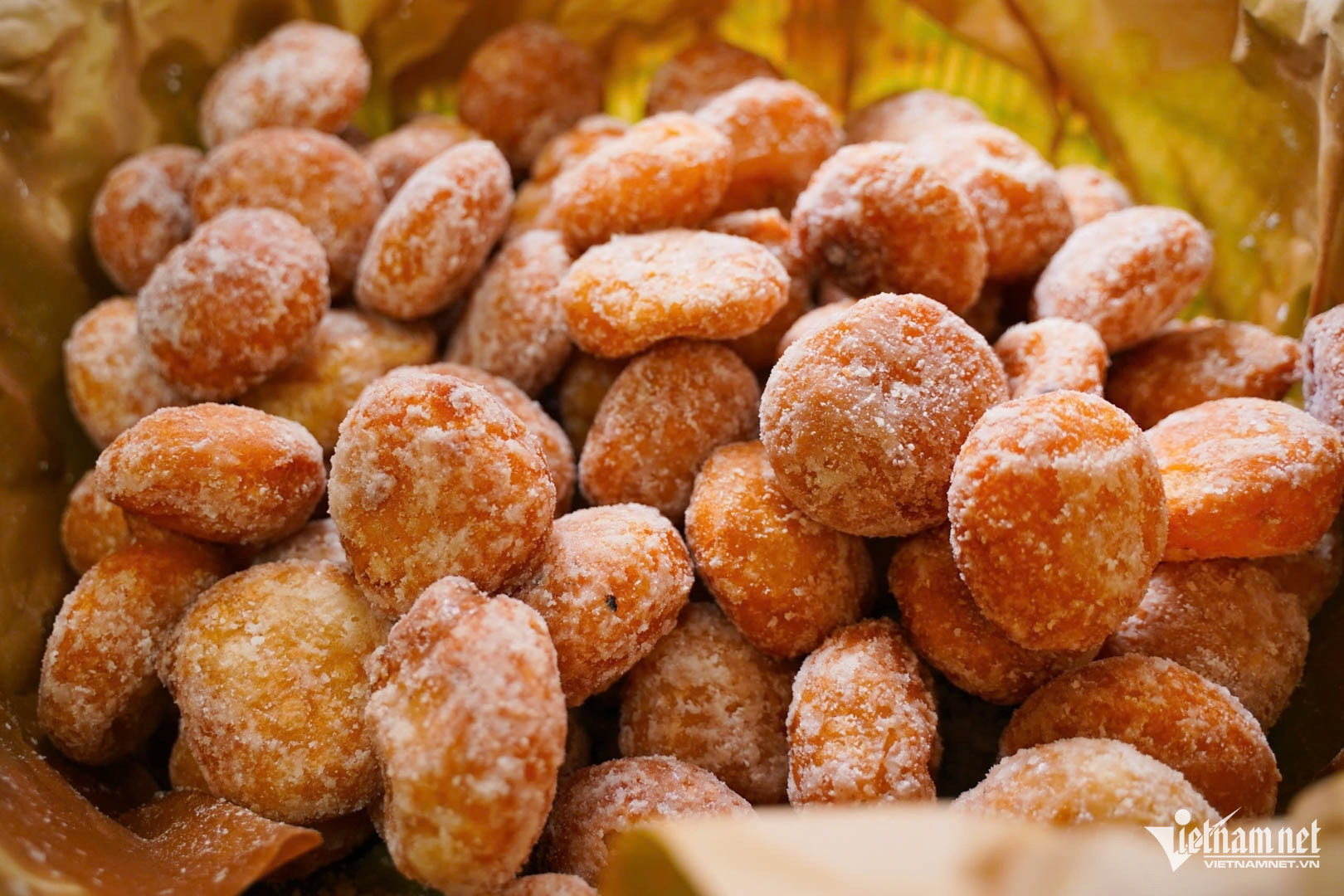 | 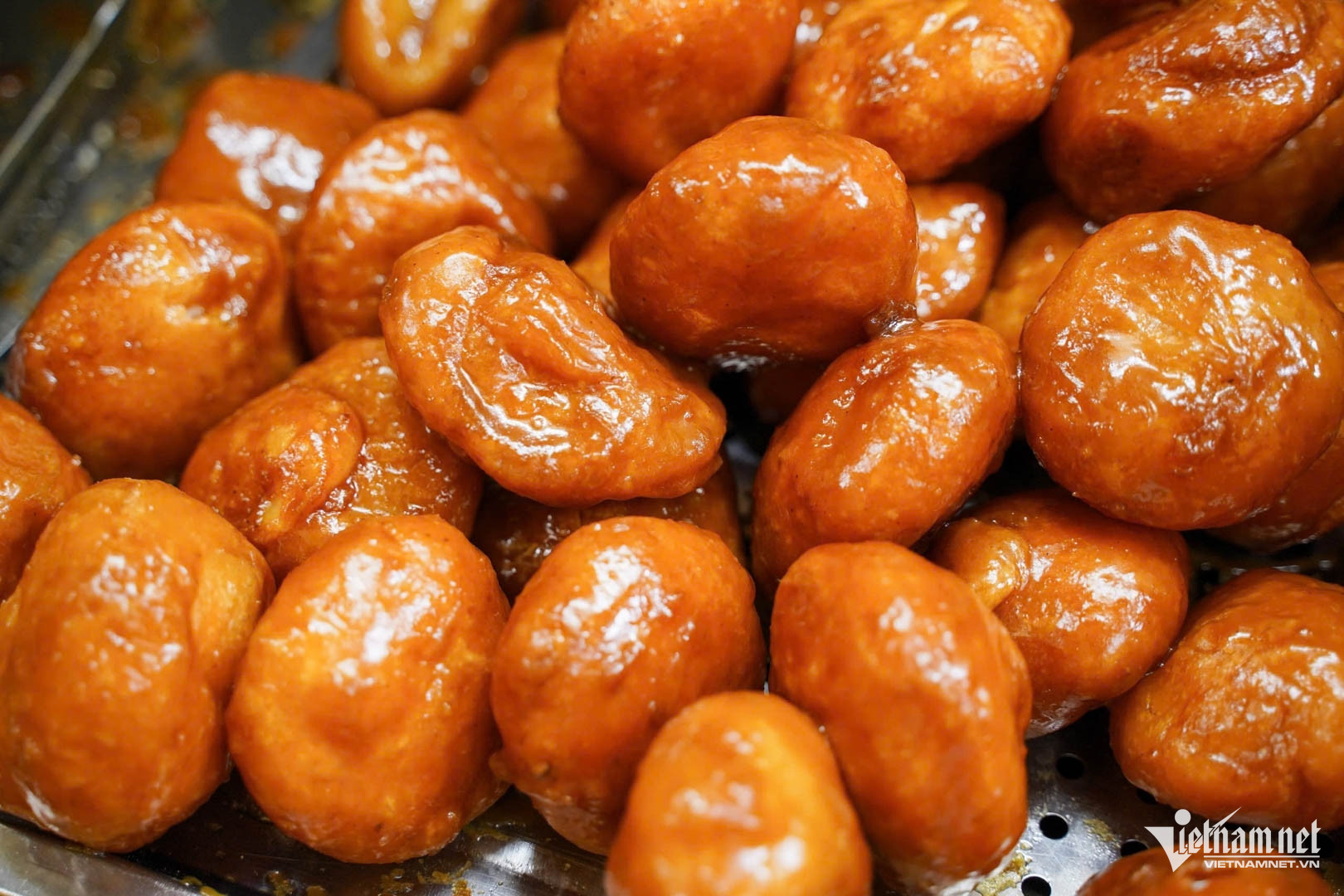 |
Based on the recipe passed down from his grandparents, Mr. Khanh adjusted it to retain the traditional flavor but to suit the taste of today's diners. The biggest change is switching from sweet to savory filling, helping to balance the flavor and reduce the feeling of fullness when enjoying.
Mr. Khanh shared: "Every day, the restaurant prepares about 200kg of rice to make the cake crust. The rice is ground, then pressed dry and kneaded until the dough is firm and elastic."
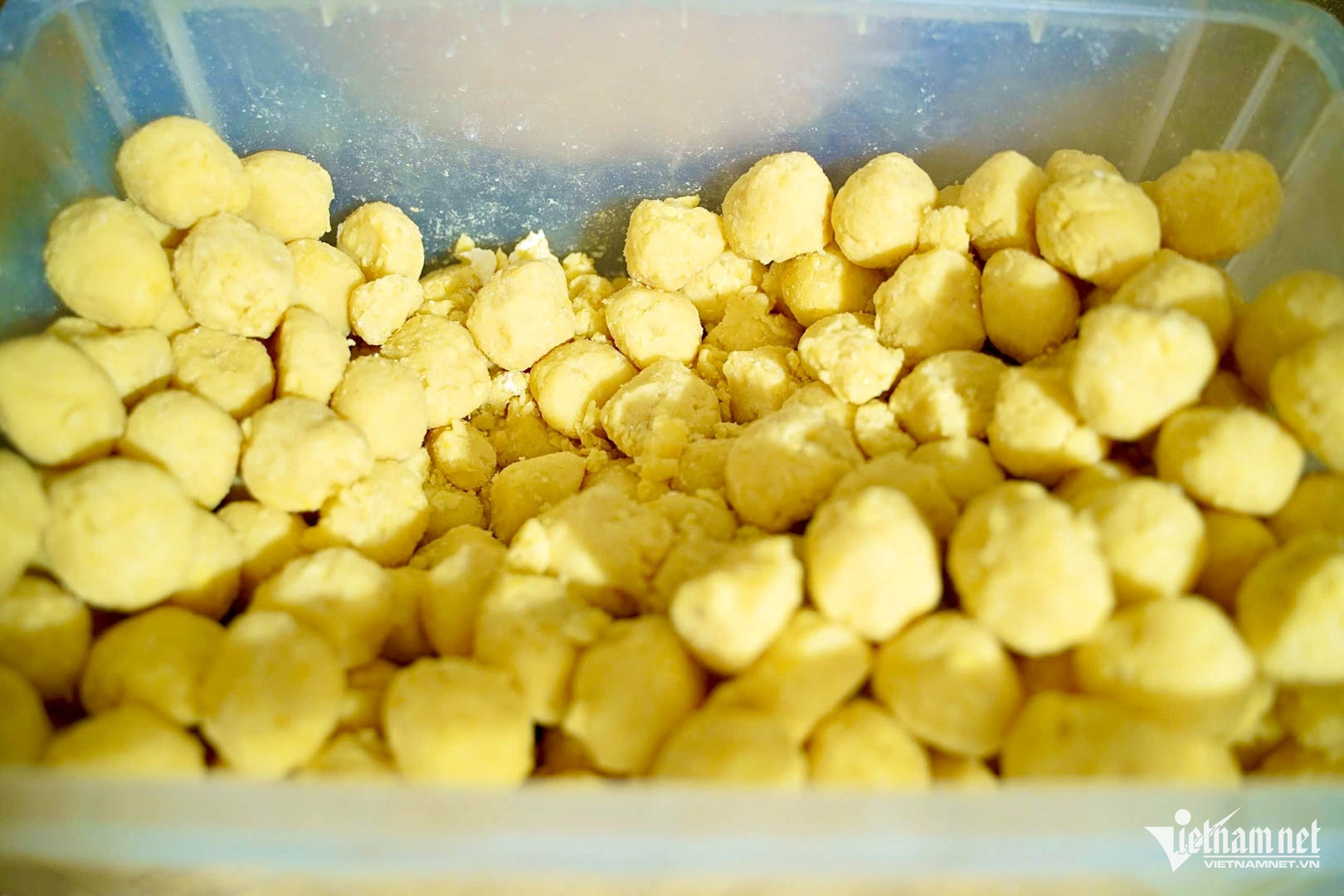 | 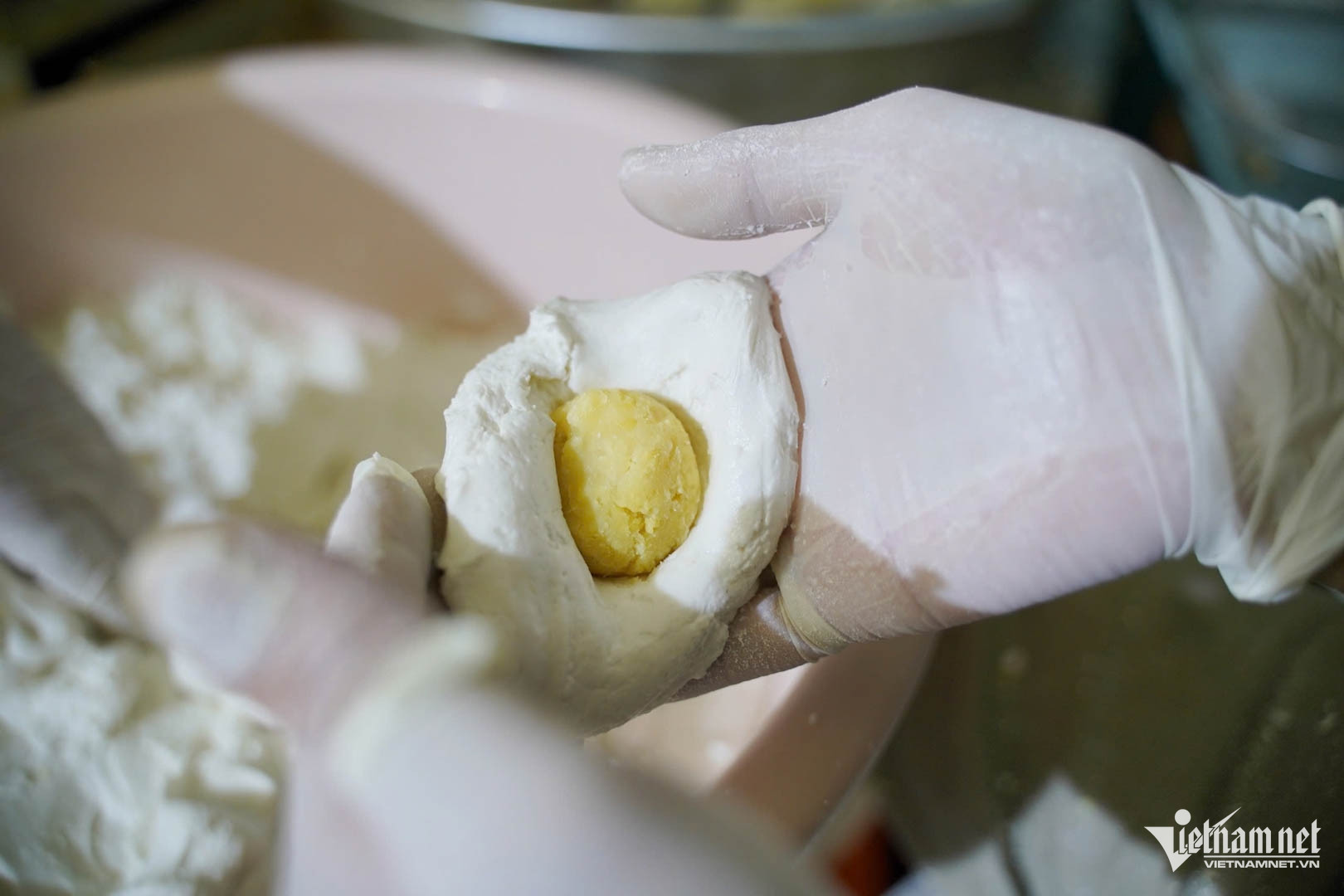 |
After being shaped, the cakes will be fried in 3 large pans of oil, gradually increasing the temperature until the cake crust is golden brown and crispy. According to the owner, the frying stage is the most difficult because it requires adjusting the temperature appropriately.
"First, the cake is soaked in a pan of oil over low heat, allowing it to slowly rise evenly. Once it begins to rise, it is transferred to a second pan at a higher temperature to continue rising.
Finally, the cake is taken out and fried in a pan at the highest temperature, helping the cake to have a crispy crust while still keeping the soft inside," said Mr. Khanh.
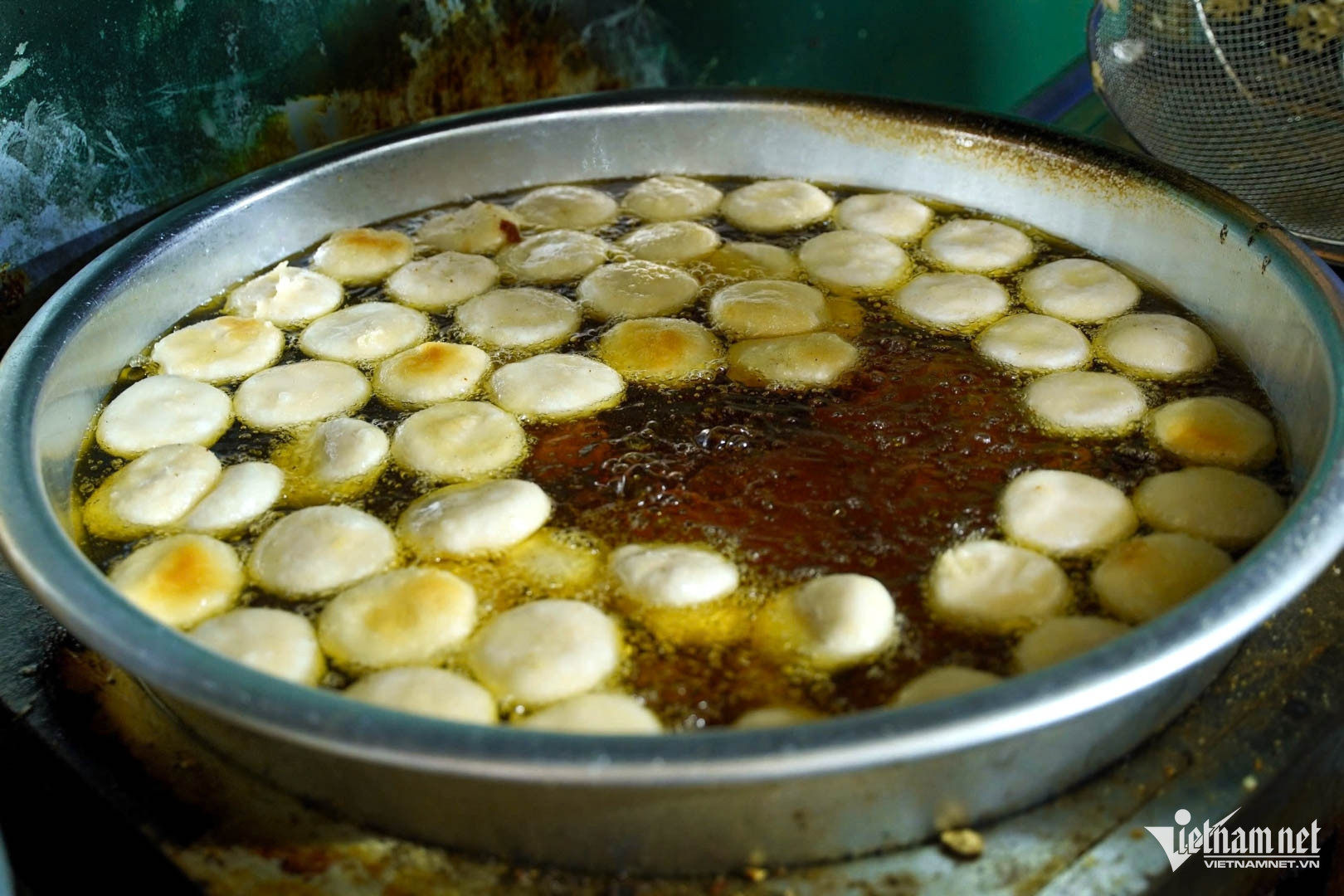
Once the cake is cooked and drained of oil, it moves on to the final step of caramelizing the sugar and molasses. White sugar and molasses are cooked separately in two pans until melted and become a thick, liquid form.
The fried cakes are dropped into the pan, the chef quickly stirs until the crystallized sugar sticks evenly around the cake and the honey covers all sides of the cake.
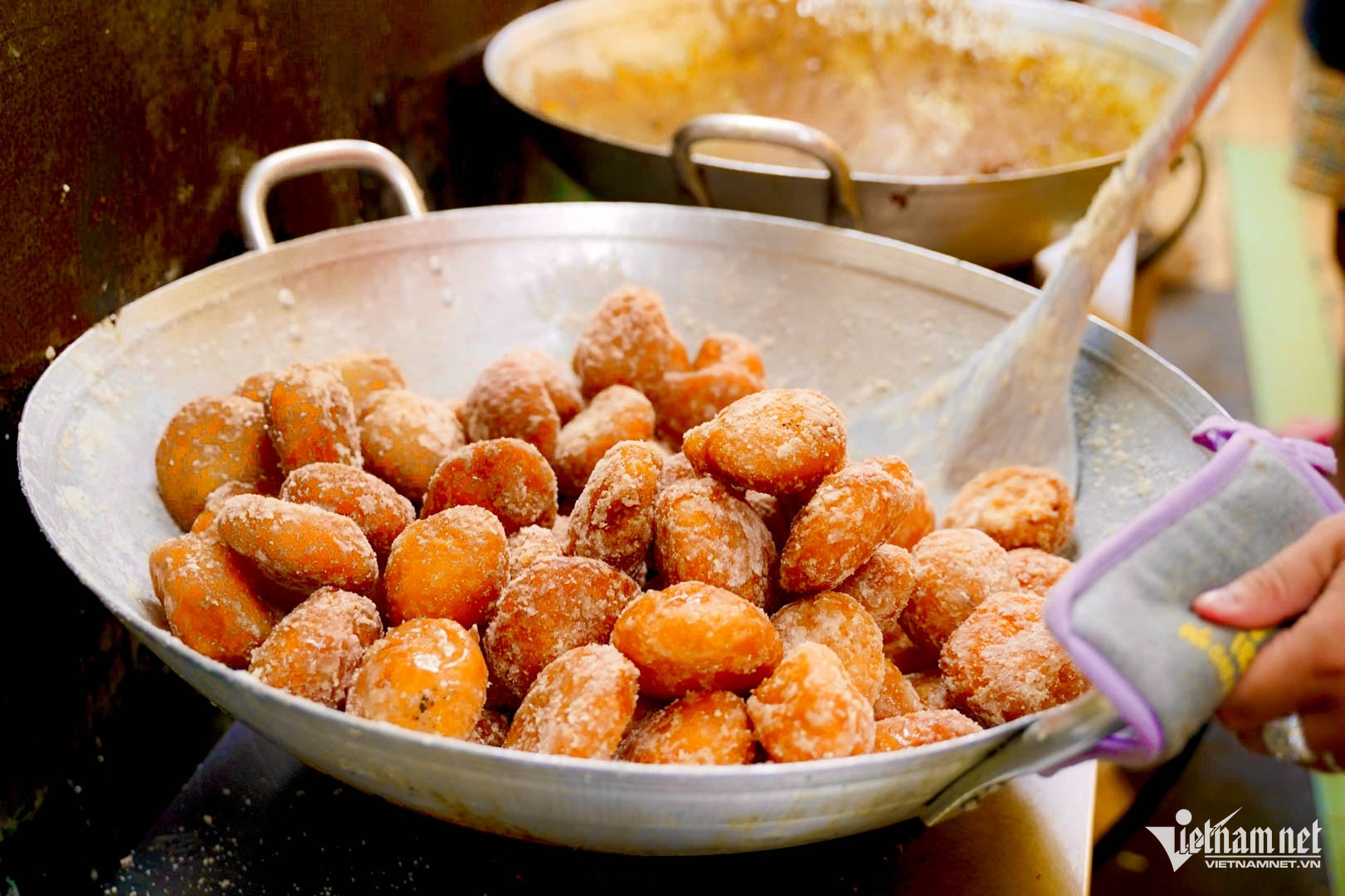
According to Mr. Khanh, a good batch of cakes must be "crispy on the outside and soft on the inside". Honey-fried cakes are covered in a layer of sweet honey, not too hard, not too runny or burnt.
When biting into the cake, diners will feel the crispiness of the crust, the sweet but not harsh molasses layer, perfectly blending with the sticky rice cake and salty mung bean filling.
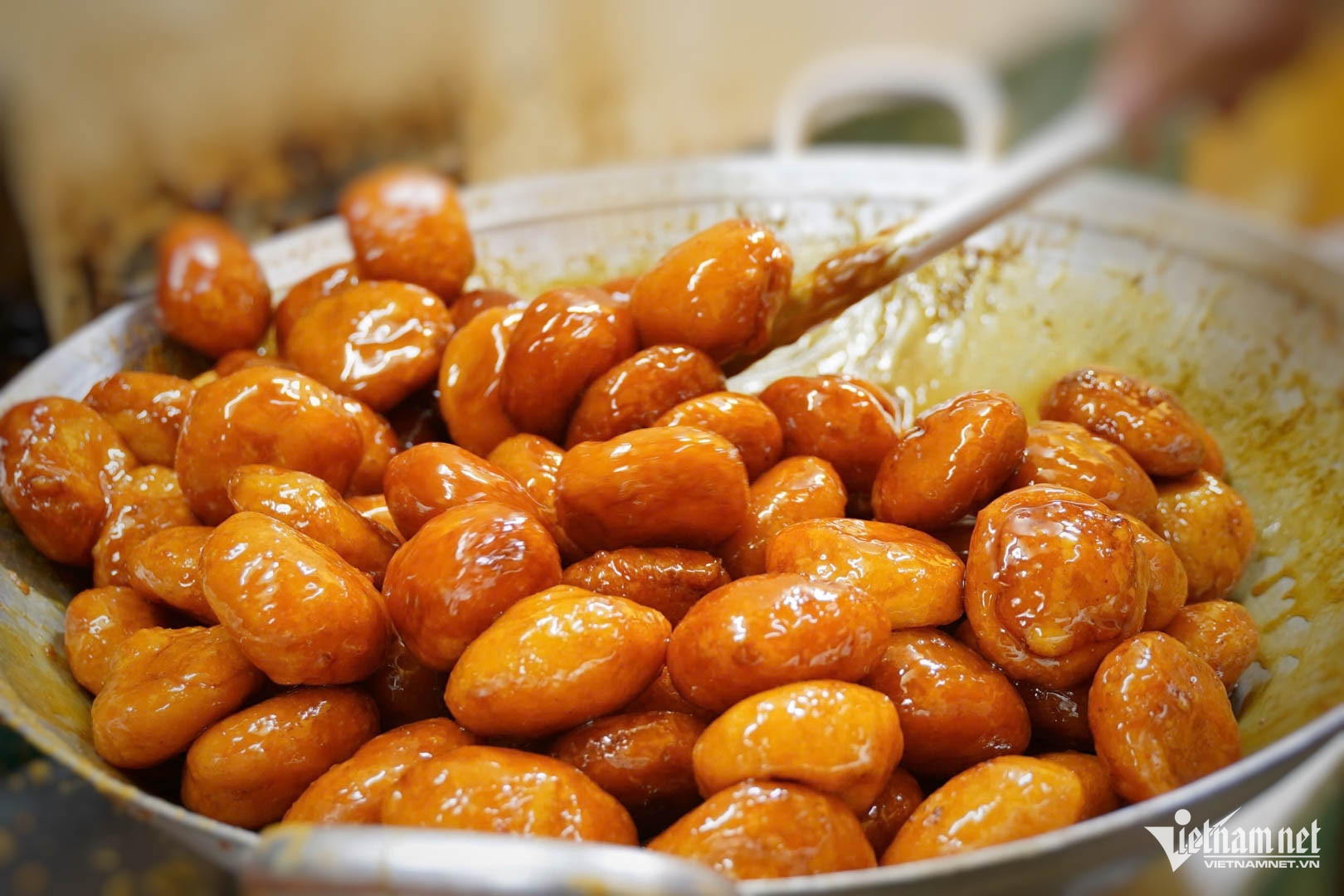
Sugar donuts are equally attractive with a layer of white sugar covering the outside. Similar to honey donuts, the mung bean filling inside has a moderate salty taste, helping diners eat a lot without getting bored.
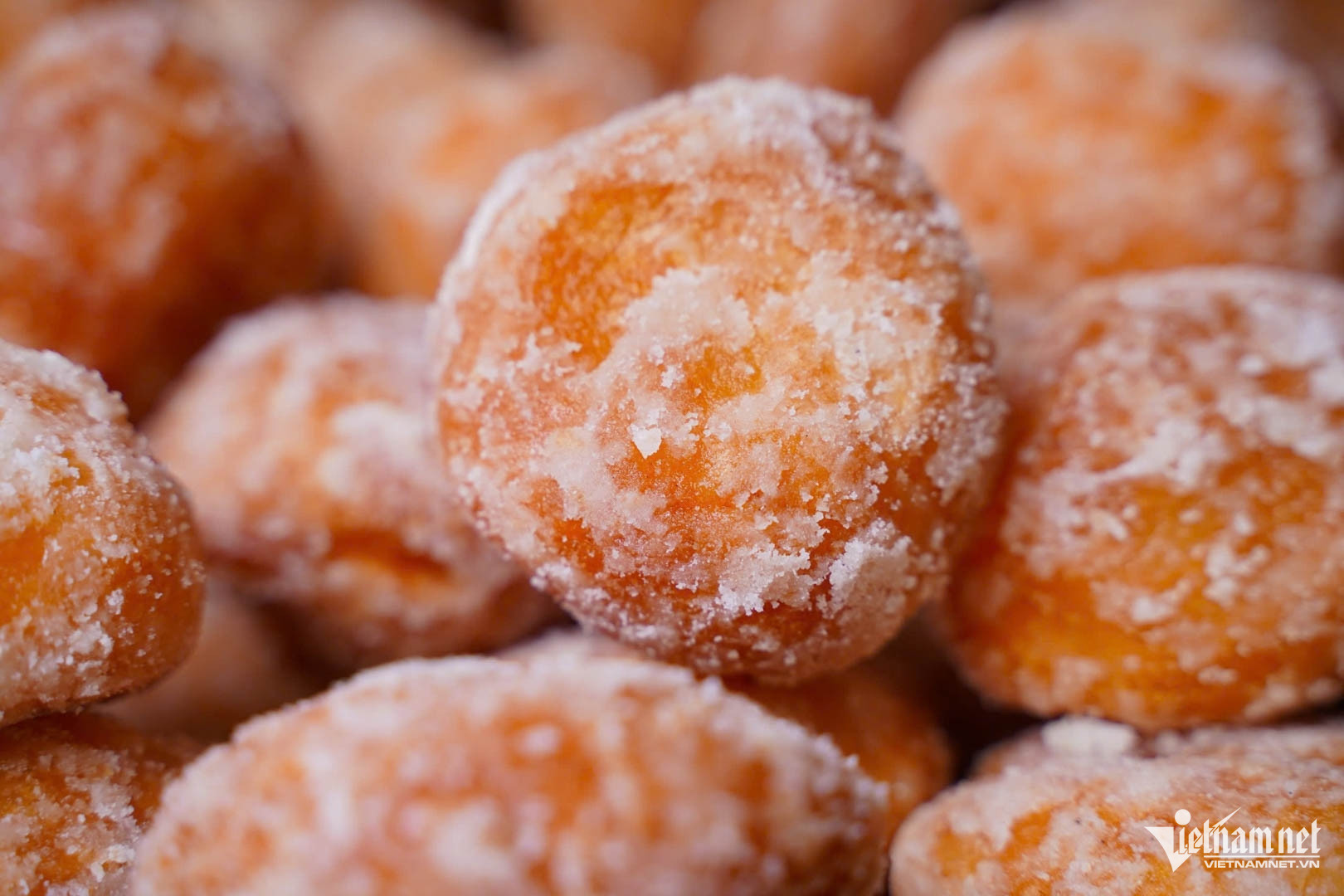
Ms. Huong (Cau Giay, Hanoi) is a regular customer of the restaurant. "The fried cakes here are very fragrant, delicious, moderately sweet, not too sweet like many other places. The filling is salty, so it balances the sweetness of the cake.
My family really likes eating cakes here because the crust is crispy and doesn't have a burnt smell.
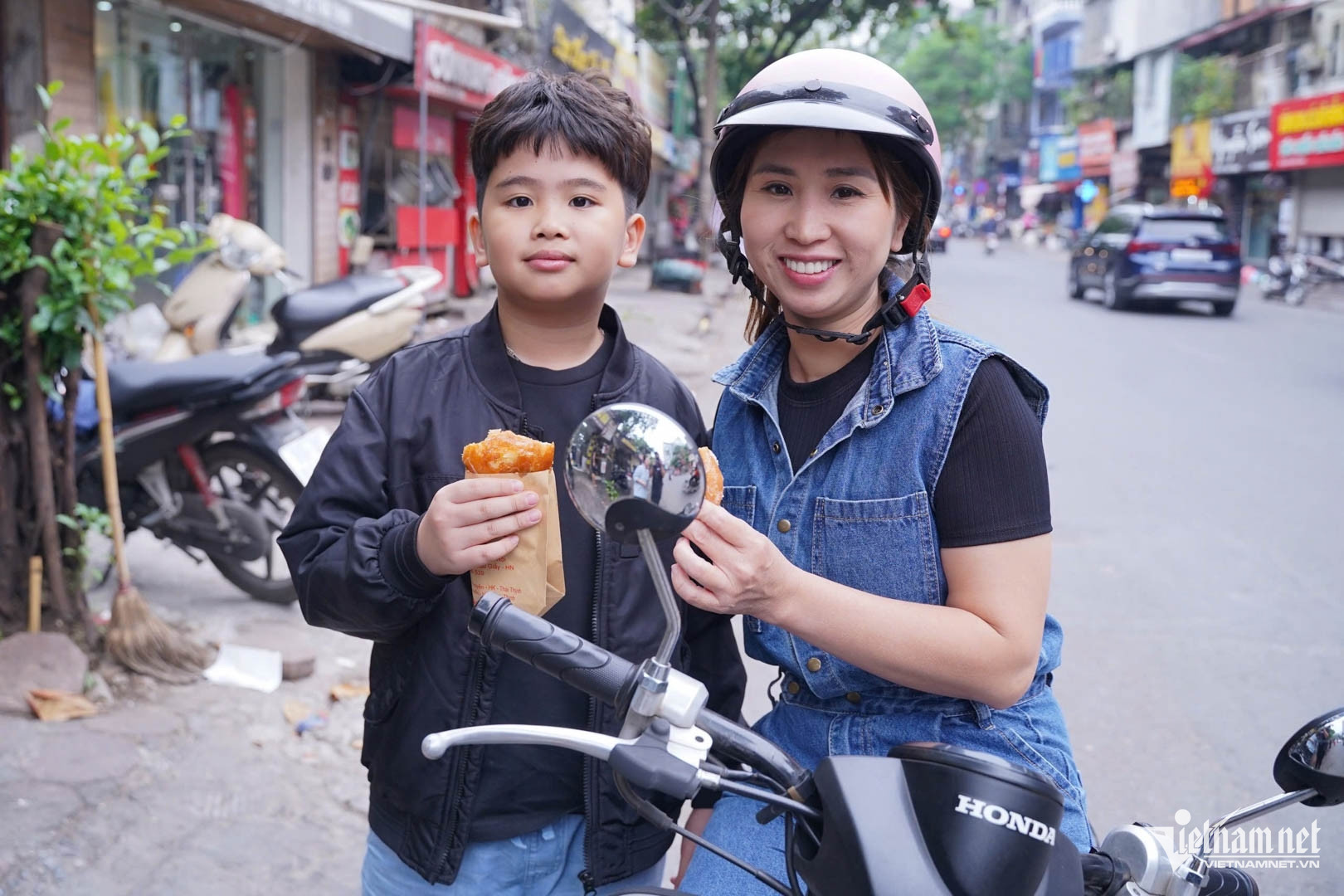
Mr. Khanh said that on average, the shop sells 4,000 - 6,000 donuts per day. In winter, the number of donuts sold can reach 10,000.
"The donuts are small and cute, but making them takes a lot of effort and time. To make them delicious, the ingredients must also be carefully selected. You cannot use cheap or low-quality ingredients," said the shop owner.
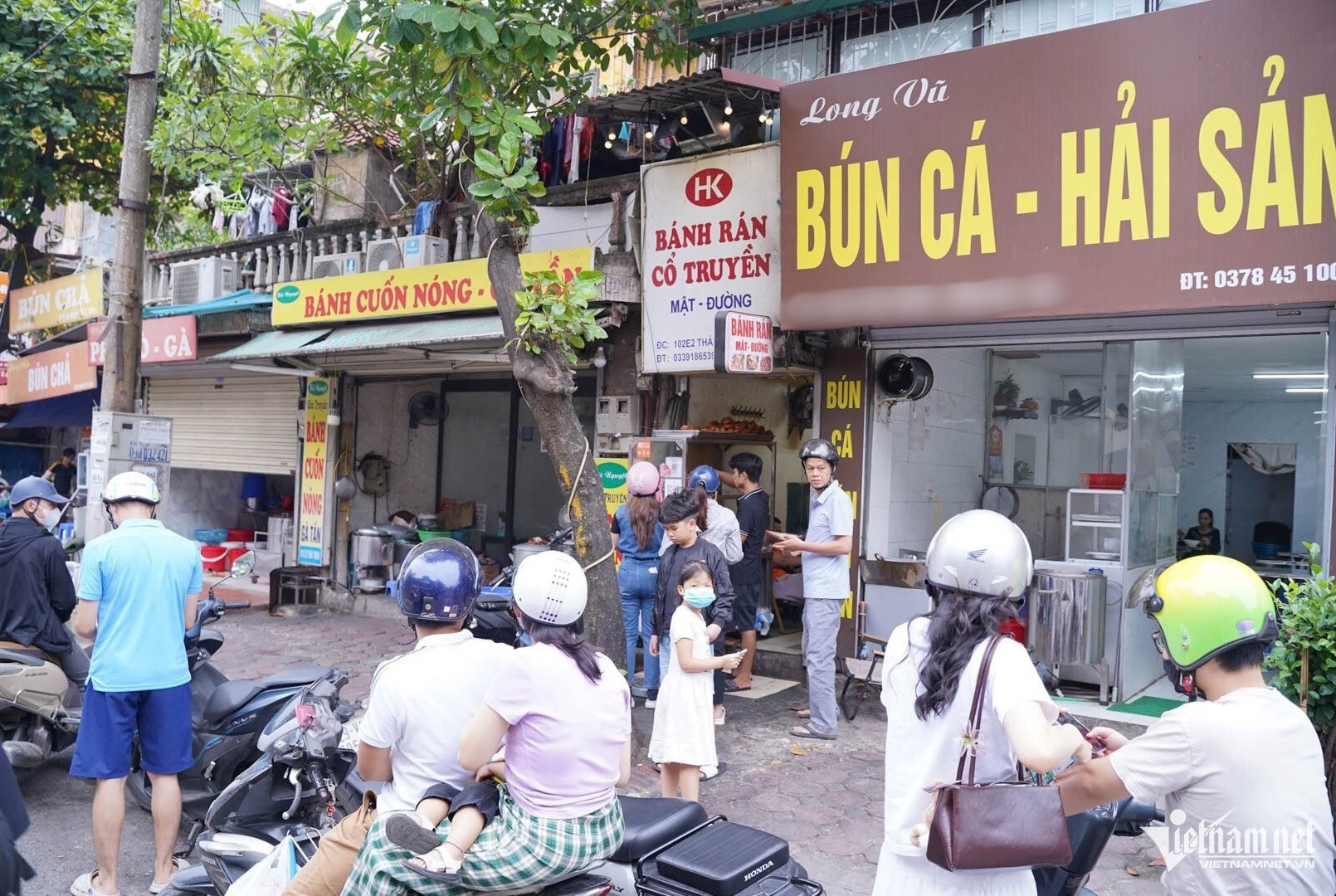
The restaurant has a modest space, nestled among the surrounding shops, with no seating and no parking area. Customers often have to park their vehicles on the sidewalk and wait in line for their turn.
From 4:30pm to 6:00pm, the restaurant is very crowded so the waiting time is long and quite inconvenient because of the heavy traffic.
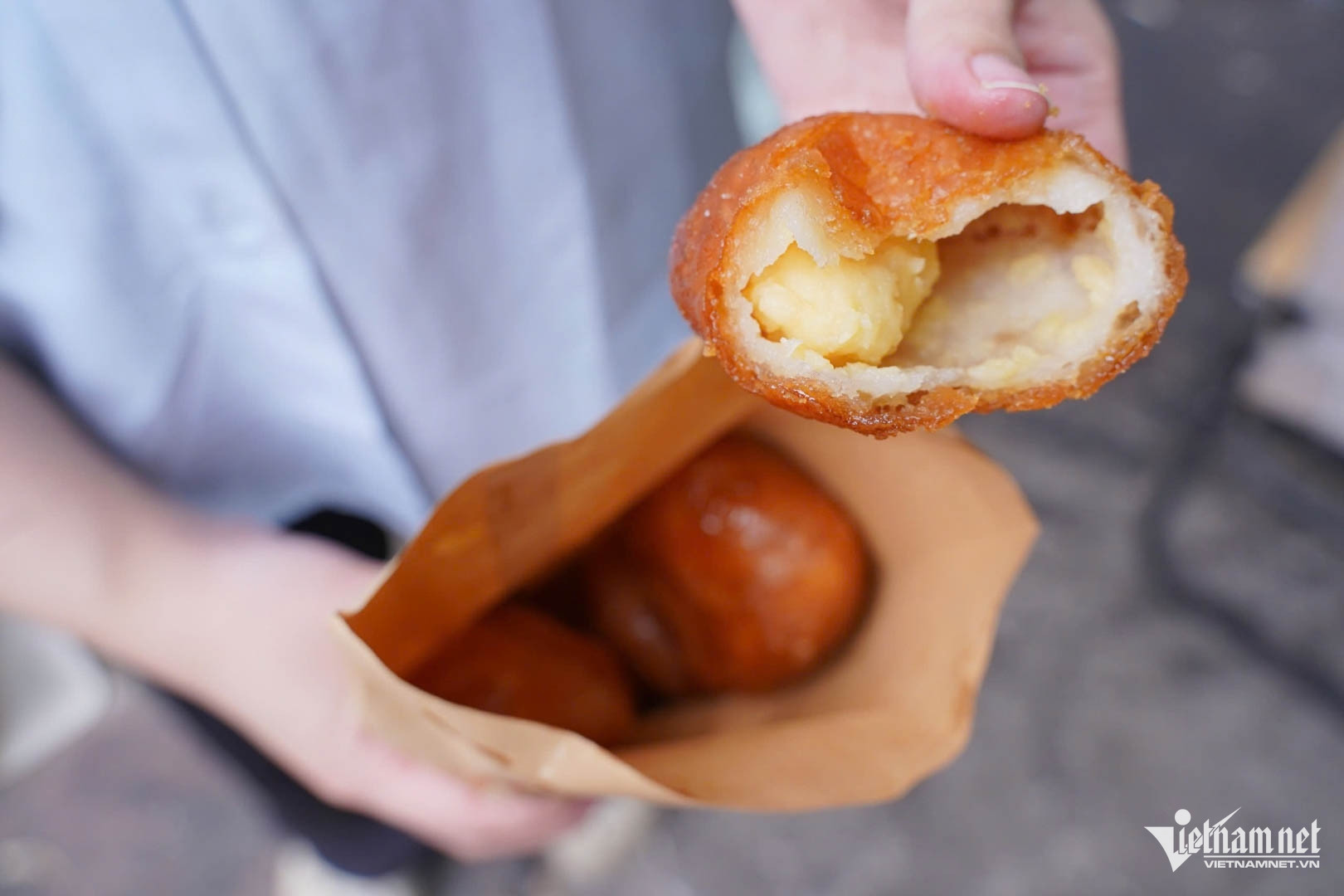
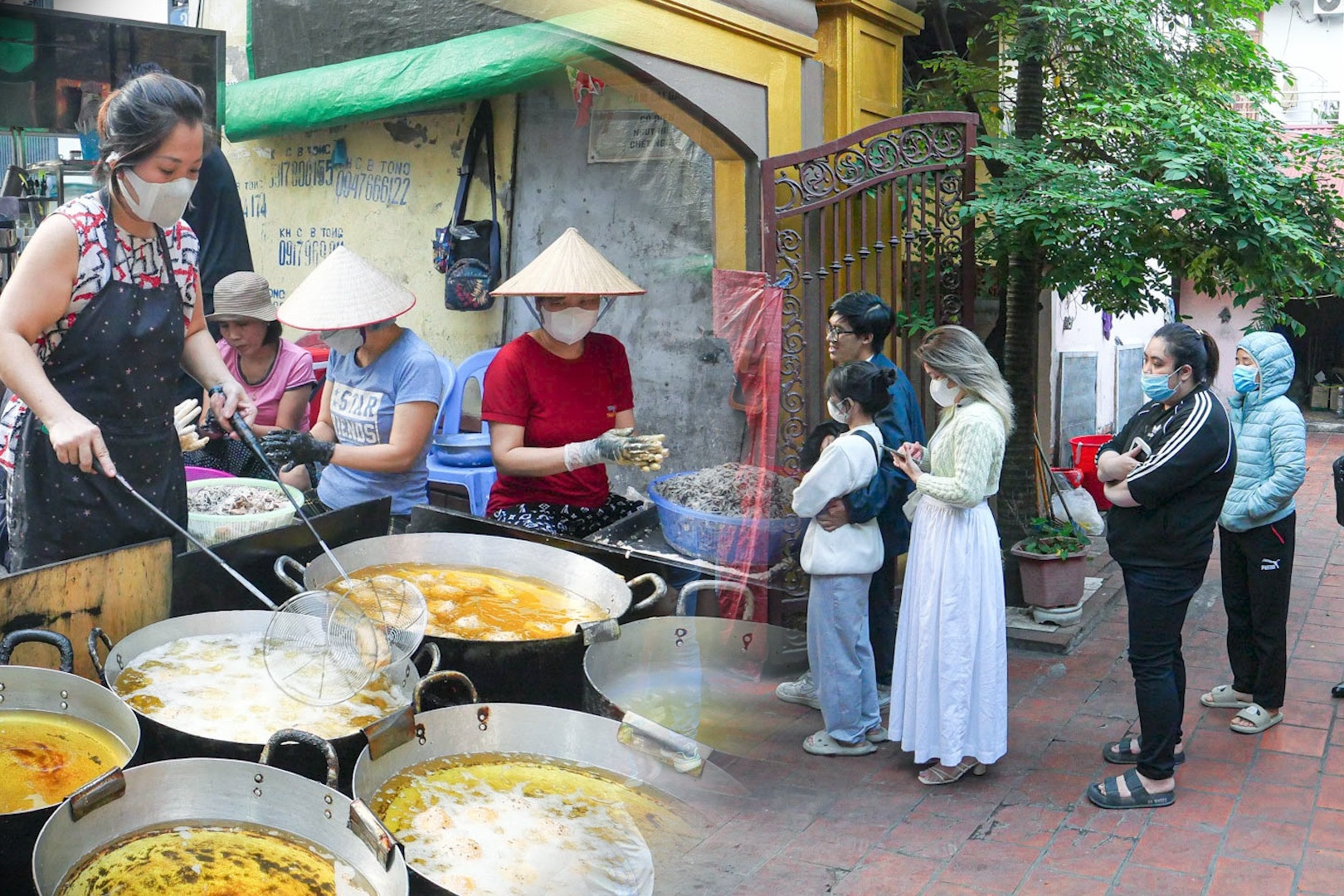
Source: https://vietnamnet.vn/quan-banh-ran-sieu-nho-ngay-ban-vai-nghin-chiec-khach-dung-kin-via-he-cho-mua-2339283.html



![[Photo] Binh Trieu 1 Bridge has been completed, raised by 1.1m, and will open to traffic at the end of November.](https://vphoto.vietnam.vn/thumb/1200x675/vietnam/resource/IMAGE/2025/10/2/a6549e2a3b5848a1ba76a1ded6141fae)






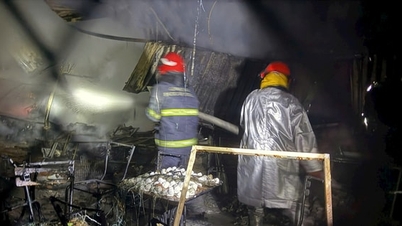








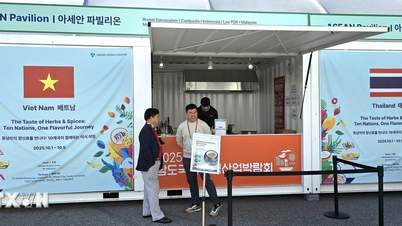



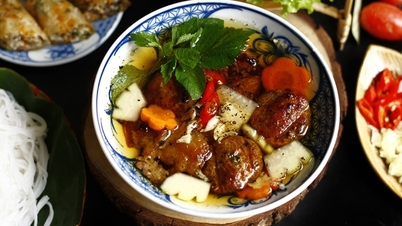

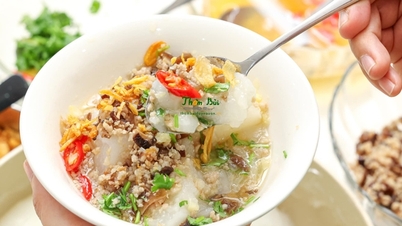












































































Comment (0)